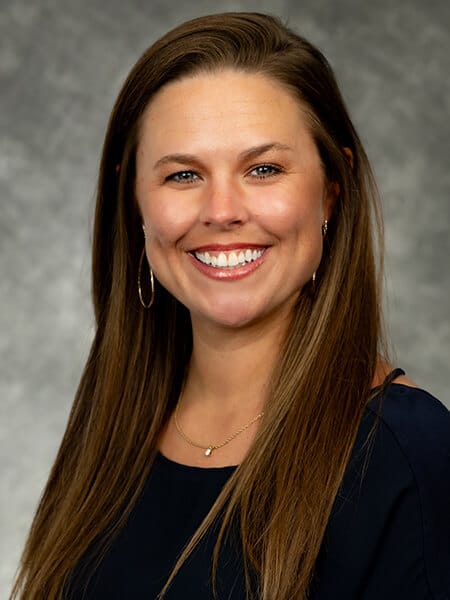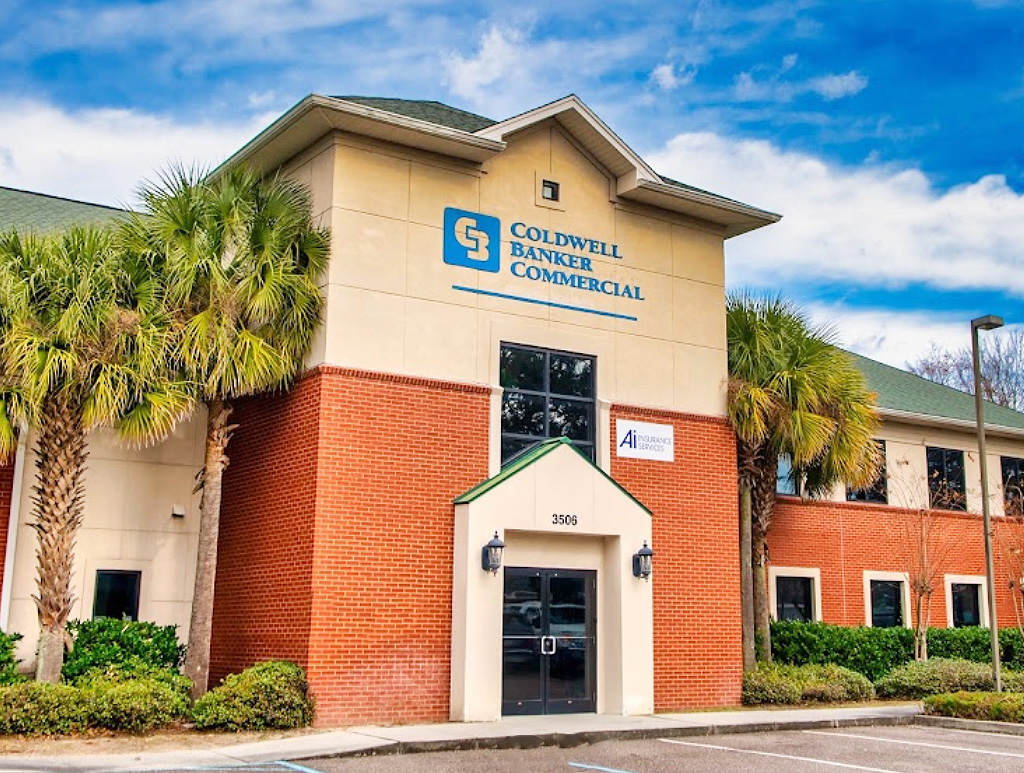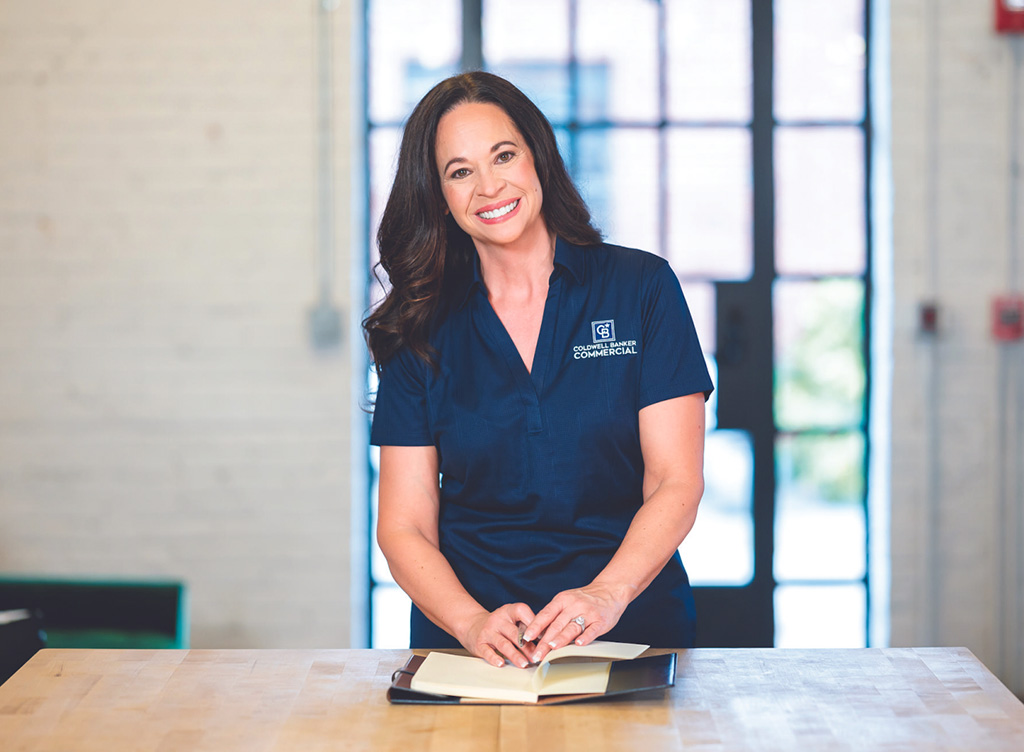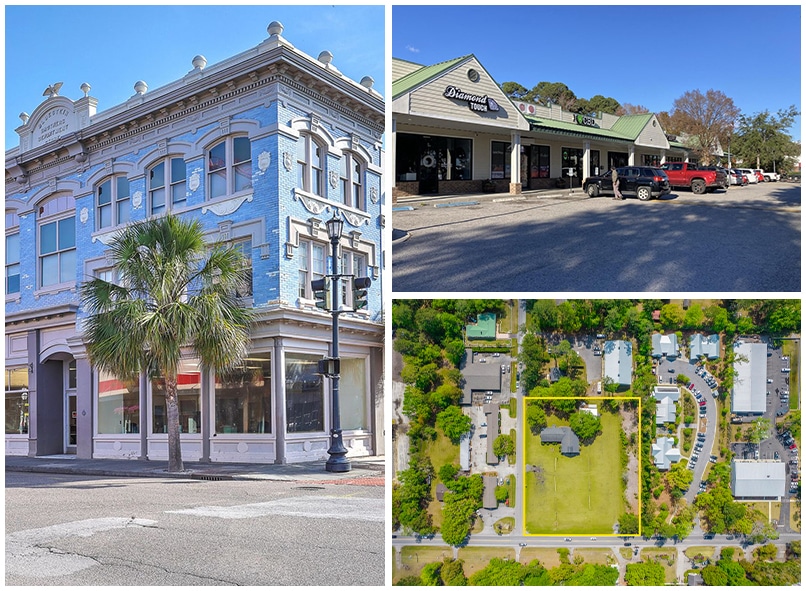

With an average of 230 days of sunshine each year, a low cost of living, and endless recreational activities, Charleston is a joy to call home. As the second most popular place to live in the U.S., metro Charleston is booming, not only with new residents but with new construction and property investment opportunities too. But with the Tri-County's rapid rate of growth comes increased real estate demand and complexity. That's especially true for commercial real estate transactions. According to CoStar, near-zero vacancy rates and short supply have forced rents and sales to reach record highs. At the same time, online medical and grocery purchases, along with last-mile delivery needs, have driven a new desire for industrial space.
It's safe to say that there is a lot of opportunity on the table for commercial real estate sellers and investors in South Carolina. But capitalizing on that opportunity without the proper market knowledge, relationships, or risk analysis can actually be counterproductive to your goals. That's where Coldwell Banker Commercial Atlantic's commercial real estate brokers in Charleston, SC, come into play.
As experts in the commercial real estate industry for more than 37 years, our brokerage provides the highest level of service to clients in today's rapid, constantly-changing business climate.
Service Areas
The Coldwell Banker Commercial Atlantic Difference
At Coldwell Banker Commercial, we pride ourselves on having local power and a global presence. Our clients entrust their complex and lucrative commercial real estate deals to us because they understand the value of working with brokers who are familiar faces within the community. On any given day, you could be standing next to one of our brokers at a grocery store or local restaurant. As your friends and neighbors, we're proud to call the Lowcountry home. Though we have local roots, our resources and expertise are backed by a global network. That power gives our commercial real estate clients peace of mind, knowing they have access to a dynamic and diversified brokerage of highly-trained and educated agents.

From general commercial leasing services and property management to investment guidance and new property site selection, our team works tirelessly to exceed your expectations and meet your goals. Whether you're looking to buy, sell, lease, or develop, our commercial real estate brokerage in Awendaw, SC provides the up-to-date advice and time-tested market knowledge needed to facilitate any commercial real estate transaction, large or small.
Some of the commercial real estate specialties we focus on in South Carolina include:
- General Brokerage and Commercial Real Estate Leasing Services
- Commercial Investment Analysis
- Commercial Property Management
- Commercial Property Development
- Commercial Construction and Project Management
- Disposition, Acquisition, and Work-Out Properties
At the end of the day, our commercial brokers and agents aren't satisfied until you're a happy customer. That's why every service and decision we recommend is made with your best interests in mind.

Why Hire a Commercial Real Estate Broker in Awendaw, SC?
Perhaps you're in a situation where you need more space for a growing business. Maybe, instead, you want to capitalize on low-interest rates and buy a commercial real estate investment property to bolster your portfolio. Whatever your needs may be, whether as an investor or a small business owner, your goals are probably the same: lock in the best value and negotiate optimal terms for leasing, buying, or selling. When it's all said and done, you want to minimize expenses and maximize your ROI.
Unfortunately, commercial real estate is complex by nature. Given today's ever-changing real estate landscape and the challenges of our economy, working with a commercial real estate agent is the savviest way to save money and lessen the likelihood of making a poor investment.
That's because the very best commercial real estate brokers, like those at Coldwell Banker Commercial Atlantic, do more than putting "for sale" signs in yards and in newspapers. They have the tools and training to source and present research apropos to your commercial real estate purchase or sale. They also have the ability to provide transaction and advisory services to ensure every aspect of your CRE process goes smoothly and efficiently. But we're getting ahead of ourselves. Here are a few of the biggest reasons to work with a commercial real estate broker in South Carolina.

Save Money
Unsurprisingly, money is one of the biggest reasons why people steer clear of CRE brokers - for the cost savings. Yet, just about every commercial real estate transaction is managed by a commercial real estate brokerage. Why might that be? The answer is that smart business owners, executives, and investors know that the most lucrative cost savings stem from good planning, time management, and successful negotiations. Only an experienced commercial real estate broker can provide you with those features while also properly structuring your commercial real estate deal.

Manage Your Time More Effectively
Commercial real estate investors and business owners often have jam-packed schedules with little time to spare for anything other than day-to-day operations. If that sounds familiar, you know how crucial time management is for commercial real estate. By working with a seasoned broker, you can uphold your daily responsibilities while they provide guidance and manage the minutia of your CRE dealings.

Access to Specialized Systems and Data
Reputable commercial real estate brokerages provide access to a bevy of information that is pertinent to your commercial real estate goals. We're talking vacancy and absorption rates, the latest sales price data, comparative labor and tax costs, and more. Your broker will help break down this information so that you can make the most informed decisions possible. Brokerages like Coldwell Banker Commercial Atlantic also have systems and software to facilitate complex real estate processes while eliminating unneeded costs. The combination of accumulated data and exclusive systems results in a more cost-effective, efficient way to meet your real estate requirements on terms that are beneficial to you.

Years of Success and Experience
As is the case with most things in life, practice and repetition are essential in honing skills and achieving business success. The truth is that no amount of money or "how to" articles can suffice for decades of real-world, hands-on experience. Sure, you can find a litany of commercial real estate info online. But those articles won't teach you about navigating the nuances of structuring advantageous purchase terms or completing complicated due diligence tasks. A successful commercial real estate broker in Awendaw, SC, will have no problem executing these often-confusing processes because they've done it dozens and dozens of times before. This priceless experience is your best resource for successful commercial real estate initiatives.

Service Integration
One of the biggest advantages of working with a commercial real estate brokerage is their ability to provide necessary services that are relevant to your real estate needs. As a Coldwell Banker Commercial affiliate, we are part of a network that allows us access to accounting, legal, and other services needed on your real estate journey. Finding and vetting these services can be very costly and time-consuming, which is unneeded stress that we're happy to remove from your plate.

Purposeful and Engaging Marketing
For any project to be successful, a strategic marketing plan must be implemented to achieve the desired results for our clients. The methods of exposing and promoting a property must be creative, innovative, and unique to your property. At Coldwell Banker Commercial Atlantic, we utilize the most effective methods that make sense for your property in South Carolina, including:
- Print Materials
- Digital Marketing
- Design Renderings
- Photography
- Weekly and Monthly Advertising
- Affiliation Marketing
- Signage
- More

Negotiating Acumen
If you're reading this page, chances are you're successful to some degree and have entered negotiations a time or two in your professional life. While that's nothing to sneeze at, the art of negotiating in the commercial real estate industry is a skill that must be honed over years of transactions. In the world of CRE, transaction negotiations are often time-consuming and stressful - two things you don't need in your life. Your commercial real estate broker will use their experience to relieve you of that stress so that you can focus on growing your business or serving tenants.

Knowledge of Local Markets
One of the most valuable reasons for working with a commercial real estate brokerage is that staff have a deep understanding of South Carolina's real estate market. In the Lowcountry, trends and market conditions are constantly changing. Opportunities are lost and found daily.
With this market knowledge, your commercial real estate broker in Awendaw, SC, can provide an easy-to-understand analysis of various commercial properties within your budget. They'll know what relevant properties are leased or sold for and how much. Savvy commercial real estate brokers are also always informed on local demographics and market indicators that impact your commercial real estate goals. For instance, with COVID becoming a more accepted part of our lives, leasing, and sales in retail have taken off, especially for Class A and Class B centers.
Brief Overview A Brief Overview of Our Specialties
At Coldwell Banker Commercial Atlantic, we specialize in several commercial real estate services. Though each service is comprehensive and will differ for each client, here is a brief overview to help you understand the scope of our abilities.

General Brokerage and Leasing Services
We're proud to say that our commercial real estate brokers in Awendaw, SC, are equipped with all the necessary skills and traits to make your life easier. From transactional needs to marketing strategies, our experience and market knowledge is second to none, allowing us to ensure your success in today's market.

Property Management
In an ever-changing commercial real estate industry, our approach to property management is constantly evolving. Our team has extensive experience in commercial real estate management and recognizes its importance as a foundation for long-term value and wealth. As such, Coldwell Banker Commercial Atlantic provides tailor-made property management packages that meet your specific assets needs and objectives.

Project and Construction Management
Whether you're entering a build-to-suite or remodeling a commercial property, our associates are ready to represent you with facility planning, design, construction, zoning restrictions, and so much more. If you're looking for a brokerage that can guide you through every step of the construction process with your goals and budget at heart, look no further than Coldwell Banker Commercial Atlantic.

Investment Analysis
Coldwell Banker Commercial Atlantic provides comprehensive investment analytics to better evaluate potential investments and increase return on those investments. Additionally, our team can facilitate single or multiple-location transactions and also find alternative financing recommendations if needed.

Property Development
From selecting the perfect building site for your property to overseeing its initial construction, our associates provide experience and expertise when you need it most, covering every step and service of property development. If needed, our team can assemble the right professionals to ensure your property is developed to your unique specifications and applicable regulatory standards.

Acquisition, Disposition, and Work-Out Properties
Our commercial real estate brokerage represents clients in both the disposition and acquisition of property and works directly with you to determine your needs. We then strive to improve efficiency and reduce costs. We also assist financial institutions and government agencies in the management and disposition of ‘troubled properties.' Our firm incorporates its spectrum of services to efficiently turn these properties around and improve their value for ultimate disposition.

Time-Tested Tips for Commercial Real Estate Investing
If you're just getting started in commercial real estate investing, you're probably searching for reliable advice and best practices to follow. While hands-on experience and guidance from a commercial real estate broker are always best, a little advice never hurts. After all, there's a wide world of opportunity out there. As you begin to build a more robust portfolio, keep these tips and tricks in mind.

Take Your Time
Commercial real estate deals can take a lot longer than traditional single-family transactions. That's true throughout the entire process, from purchase, to renovation, to selling. That's not a bad thing - after all, having impatience is a good way to rush into a poor decision. Instead of a means to quick cash, think of commercial real estate deals as a large bonus or as a vehicle for retirement.

Keep an Open Mind
Many commercial real estate investors jump right into the multi-family property space. However, it's essential to keep other types of properties in mind, such as mobile homes, office buildings, land, and even mobile home parks. Forget about your comfort zone. Instead, weigh your options and choose a niche that helps you meet your goals.

Search for Great Financing Before Making Offers
Commercial loans are quite different than their residential counterparts. In some ways, they're better. Though down payments are typically higher, meaning you'll put more down, there's often no personal liability involved. Plus, commercial loans can be more forgiving when borrowing money for down payments. The bottom line is to search for the best lenders before making an offer. If you're having trouble, ask your commercial real estate broker for assistance, as they often have connections and partnerships with relevant entities.

Learn the Appropriate Formulas
If you're used to buying residential homes, you're probably familiar with some formulas, such as buying 75% of after-repaired value minus the estimated cost of repairs. Depending on the type of commercial property you're buying or selling, you'll have different formulas to learn. Two examples are Cap Rates and Net Operating Income. Learning these formulas can be very beneficial when making an offer.

Lean On Your Commercial Real Estate Agent in Awendaw, SC
If you find yourself discouraged with the commercial real estate game, remember that the team at your commercial real estate brokerage is there to make your life easier. At Coldwell Banker Commercial Atlantic, we have a powerful brokerage with a team of over 20 highly skilled and educated agents. Our job is to serve you, whether you're a new investor looking for your first deal or an experienced property owner looking for 1031 tax investment advice.

REQUEST CONSULTATION
Latest News in Awendaw, SC
Awendaw passes subdivision moratorium, plans more restrictions on residential development
David Slade dslade@postandcourier.comhttps://www.postandcourier.com/news/awendaw-sc-blocks-new-subdivisions-and-considers-new-rules-to-slow-growth/article_6cea5764-db3f-11ee-a683-078d6b0a0c00.html
AWENDAW — Fearing that rapid development is changing this small coastal community for the worse, Town Council signed off on moratorium that temporarily blocks most new subdivisions and heard plans to nearly double the amount of land required to build a home.The town is also considering rules to increase protection of large trees — including pine trees, which some governments exempt — and those rules would be enforced with larger fines.Rural Awendaw is largely surrounded by the Francis Marion National Forest an...
AWENDAW — Fearing that rapid development is changing this small coastal community for the worse, Town Council signed off on moratorium that temporarily blocks most new subdivisions and heard plans to nearly double the amount of land required to build a home.
The town is also considering rules to increase protection of large trees — including pine trees, which some governments exempt — and those rules would be enforced with larger fines.
Rural Awendaw is largely surrounded by the Francis Marion National Forest and the Atlantic coast, but it also shares a border with South Carolina’s fourth-largest municipality, Mount Pleasant.
With about 1,400 residents, Awendaw’s population could more than triple due to developments that already have been approved. One subdivision alone, known as the King Tract, could have 965 homes on 1,354 acres under a 2009 development agreement with the town .
The town has no sewer system, and construction of so many new houses with septic systems has raised concerns about pollution. Awendaw’s government has gone from welcoming and encouraging development to applying the brakes, after changes in leadership.
On March 7, Town Council gave final approval to a moratorium — a temporary freeze — that would:
Developments that already have been approved would see no impact from the moratorium.
The freeze on most subdivisions and rezonings has been in effect since early January, because it was initially approved then, and was applied under the pending ordinance rule. That allows municipal rules to take effect while awaiting a final vote.
Next, the town will consider nearly doubling the amount of land required to build a single-family home, from 12,500 square feet to 21,500, roughly a half-acre. That’s a strategy other South Carolina towns and cities have used to reduce the density of development.
If that rule is adopted, it would take nearly twice the amount of land to build the same number of new homes in Awendaw.
Town planner Mark Brodeur told council members the rule change is intended to reduce “development intensity” and septic systems on smaller lots. At a public hearing March 7, no one spoke in opposition to the concept.
SC Climate and Environment News
At the same meeting Brodeur laid out proposed tree-protection changes, saying the town’s current rules are unclear and need to be more robust.
What’s proposed it reducing the size of hardwood trees such as Live Oaks that would be protected, from an 18-inch diameter at chest height to 12 inches. Softwood trees would also be protected if they are at least 30 inches in diameter at chest height.
Removing a protected tree without a permit would, under the proposal, result in a $250-per-day fine until mitigation steps are taken. That would mean planting new, native trees to compensate, or paying into a town tree fund at $100 per inch.
“The current ordinance doesn’t have a stick attached to it,” Brodeur said. “An ordinance is only as good as its enforcement.”
Some Awendaw residents said the proposed fine should be much higher. John Brubaker suggested $500 per diameter inch, and said Georgetown County has such a rule.
“I would encourage you to consider that,” said resident Grace Gasper, echoing Brubaker.
Carol Riggs was displeased to hear the planned tree rules explained.
“So, I have to ask permission to cut a pine tree on my own land?” she said. “Who are you to tell me if I can cut a tree?”
Brodeur said residents should rest assured that damaged or diseased trees, or those within 10 feet of a home’s foundation, would be permitted for removal. Brodeur said he’s never refused such a permit.
Both the tree protection rules and the minimum lot sizes for new homes are proposals that would require action by Town Council.
Awendaw, afraid of becoming Mount Pleasant, halts most new subdivisions
David Slade dslade@postandcourier.comhttps://www.postandcourier.com/news/moratorium-on-development-takes-hold-in-coastal-awendaw-sc/article_a7e1c844-d25b-11ee-9bbe-ebacc6395028.html
AWENDAW — Just stop all the rapid home construction and let us catch our breath.That’s the message this small coastal town is delivering to developers with a temporary ban on most new subdivisions.In the fastest-growing state in the nation, Awendaw is among an increasing number of local governments adopting moratoriums that halt some types of development for a short time or for many years.The justification for such moratoriums is typically to create time to update local development rules, usually to make them...
AWENDAW — Just stop all the rapid home construction and let us catch our breath.
That’s the message this small coastal town is delivering to developers with a temporary ban on most new subdivisions.
In the fastest-growing state in the nation, Awendaw is among an increasing number of local governments adopting moratoriums that halt some types of development for a short time or for many years.
The justification for such moratoriums is typically to create time to update local development rules, usually to make them more strict once the moratorium is lifted. That’s the case in Awendaw.
The rural village of about 1,400 residents in Charleston County sits just above Mount Pleasant, and the towns share a municipal border. Mount Pleasant became South Carolina’s fourth-largest municipality after decades of suburban development and has about 94,000 residents.
Mount Pleasant residents eventually got fed up with rapid growth, more traffic and crowded schools. The town now has limits on annual building permits, high development impact fees and a moratorium on multi-family construction that has been in place for seven years.
Awendaw Councilman Kent Prause had a front-row seat for much of Mount Pleasant’s love/hate relationship with growth because he was the town’s zoning administrator. Prause has been leading the push for Awendaw’s moratorium on zoning changes and subdivisions.
“Volume builders and tract home builders are coming in,” he said. “They pretty much built out Mount Pleasant and now they are coming here .”
“The people didn’t like it and that’s why the moratorium is in place,” said Prause. “They don’t want it to be Mount Pleasant.”
The Awendaw moratorium hasn’t been finalized, but it took effect in January under what’s known as the pending-ordinance doctrine. That means the rules took hold as soon as Awendaw’s council gave initial approval to the measure, although a final vote at a meeting scheduled for March 7 is still needed.
The ordinance states that “Town Council finds that the increase in the number and size of large-scale residential developments in the Town pose a risk to public health, safety, welfare, and quality of life in Awendaw...” for many reasons.
The moratorium wouldn’t halt developments that have already been approved. What it would do is:
Of course, moratoriums can also be extended, as Mount Pleasant has done multiple times with its ban on new multi-family housing.
And Awendaw’s moratorium rules could change before they get final approval. The town’s Planning Commission recommended a 10-parcel cutoff for new subdivisions, instead of five, and allowing zoning changes on parcels of less than 10 acres.
At a Town Council hearing Feb. 22, no one spoke in favor of the Planning Commission’s recommendations. Several residents urged the council to approve the moratorium without changes.
“We’ve already approved so many homes in this town,” said Susan Cox. “We need to stop it, and figure out what is going on.”
Developers paid limited attention to Awendaw for a long time because the town lacks a sewer system. New developments need to use septic systems, which require state permits and are more likely to fail in places where the water table is high.
But the Charleston area’s population growth and Mount Pleasant’s limits on development and lack of available land have increasingly pushed development up the coast.
SC Climate and Environment News
In 2022, Awendaw approved a 204-home subdivision on 148 acres near Seewee and Bulls Island roads over objections that its more than 200 septic systems could fail and send raw sewage into the waters near Cape Romain Wildlife Refuge.
Awendaw can’t ban septic systems because there’s no other option for treating household sewage, but in 2023 the town made it more difficult to build dense subdivisions where each house has a septic system. Awendaw adopted rules for minimum lot sizes, distance from wetlands and other regulations.
“It seems the less stringent rules are letting developers come in and have their way with the town,” Planning Commission member James Gardner told council members at the time.
The pending development moratorium is the latest result of a change in attitudes and leadership in Awendaw. In the earlier 2000s the town aggressively sought to grow its boundaries through annexations — prompting court challenges — and approved some large subdivisions.
“Managed growth is the key to Awendaw’s future,” reads the first sentence of a large, framed copy of the town’s vision statement, on the wall where Town Council meets.
A History of Awendaw’s First Residents
Rachael Lolar Special to The Post and Courierhttps://www.postandcourier.com/a-history-of-awendaw-s-first-residents/article_d39ba248-6dc5-11ee-adf5-cbf67704a486.html
Charleston is a region steeped in history, and every corner has its own story that contributes a piece of the Lowcountry’s historical tapestry.The Town of Awendaw, located along U.S. Highway 17 N between Mount Pleasant and McClellanville in Charleston County, has Native American roots through the Sewee tribe.The Sewee tribe lived along the lower part of the Santee River, along the coast to the westward divide of the Ashley River, in present-day Moncks Corner and Dewees Island. Sewee, which means “Islanders,” w...
Charleston is a region steeped in history, and every corner has its own story that contributes a piece of the Lowcountry’s historical tapestry.
The Town of Awendaw, located along U.S. Highway 17 N between Mount Pleasant and McClellanville in Charleston County, has Native American roots through the Sewee tribe.
The Sewee tribe lived along the lower part of the Santee River, along the coast to the westward divide of the Ashley River, in present-day Moncks Corner and Dewees Island. Sewee, which means “Islanders,” were one of more than two dozen Native American tribes that occupied the South Carolina coast long before European settlers stepped foot on the coastal soil.
In 1696, settlers who retreated from Salem, Massachusetts, after the Salem Witch Trials founded “Wappetaw,” which is now known as Awendaw.
Like most Native American tribes, the Sewee people were impacted by diseases and warfare. However, their mark on the land still stands today in the form of a shell mound.
The Awendaw Sewee Shell Mound is one of the oldest and northernmost mounds found along the Carolina coast and is comprised mainly of oyster shells. Similar Native American shell rings can also be found in Mount Pleasant and Hilton Head Island. According to archeologists, the Sewee mound is believed to be roughly 4,000 years old. While it is generally thought that the mound was a dumping ground for old oyster shells, there are theories that the shell rings served a ceremonial purpose.
The Sewee Shell Ring is located near a preserved freshwater marsh, and the site can be seen from a new trail in the Francis Marion National Forest that reopened in 2022, replacing the wooden boardwalk with a fiberglass structure that is designed to last longer and withstand storms. The one-mile self-guided trail features five interpretive stops and views of wildflowers, salt marsh and tidal creeks. It’s a perfect way to immerse yourself in the beauty of the Lowcountry and experience the land where the Sewee once lived.
While little information remains about the daily lives of the Sewee people, local historians and the Town of Awendaw have made an effort to research and remember these Native Americans who lived, hunted and fished in this area. The Sewee name can be found at various establishments throughout Awendaw, such as the Sewee Outpost store, the See Wee Restaurant, the Sewee Visitor and Environmental Education Center.
Whether you’re just visiting the area or taking up permanent residence in Awendaw, be sure to plan a trip to the Francis Marion National Forest and allow yourself to walk in the woods, be surrounded by the unspoiled beauty of the Lowcountry, and visit the historic shell ring to pay tribute to Awendaw’s first residents.
Editorial: Awendaw must rise to challenge of new development
THE EDITORIAL STAFFhttps://www.postandcourier.com/opinion/editorials/editorial-awendaw-must-rise-to-challenge-of-new-development/article_ff5c8c82-cf17-11ed-874d-dfb9ed8cbe1a.html
The town of Awendaw was incorporated more than three decades ago, not so much to provide municipal services but to let residents control their planning and zoning decisions rather than relying on county government. In recent years, however, that job has become increasingly challenging because Mount Pleasant is running out of large developable sites, our region's continued growth is creating dramatic demand for more housing and Awendaw's location helps it retain much of its rural charm, wedged as it is between two environmental treasures of n...
The town of Awendaw was incorporated more than three decades ago, not so much to provide municipal services but to let residents control their planning and zoning decisions rather than relying on county government. In recent years, however, that job has become increasingly challenging because Mount Pleasant is running out of large developable sites, our region's continued growth is creating dramatic demand for more housing and Awendaw's location helps it retain much of its rural charm, wedged as it is between two environmental treasures of national significance: the Cape Romain National Wildlife Refuge and the Francis Marion National Forest.
It's more important than ever that town officials recognize the growing importance and intensity of their planning work — and rise to the occasion to protect the relaxed, rural ambiance that has defined this part of South Carolina's coast.
There are some encouraging signs.
A year ago, we lamented proposals to develop two large subdivisions, with 249 and 204 homes respectively, to be served by individual septic tanks since there are no sewer lines in the town. Those are still in the permitting stages and we hope they will be scaled back if they're built at all. They certainly underscore the need for state regulators to consider the cumulative impact of large subdivisions with dozens, even hundreds, of septic tanks that can compromise nearby waterways, as they have done along Shem and James Island creeks.
But the encouraging news is when yet another septic-tank subdivision was proposed recently, the Awendaw Planning Commission voted unanimously against Sewee Landing's 72 homes on 50 acres. At the same meeting, the commission recommended an update of the town's planned development ordinance that these subdivisions had relied on.
Awendaw Town Council could consider both the subdivision proposal and the ordinance rewrite as early as this week, and we urge council members to follow their planning commissioners' advice.
Even when a septic system is well-maintained, it can face problems if the water table is too high, and rising groundwater can carry the resulting contaminants to rivers and marshes, a problem that's expected to grow more acute as climate change pushes sea levels higher. Awendaw's proximity to the pristine Cape Romain makes it a desirable place to live, but too many septic tanks too close to the refuge (and too close to each other) could taint the very thing that makes the area an attractive place to visit and to live.
These developments don't pose a threat simply because they would rely on septic systems. They also would increase the amount of impervious surface and stormwater runoff, exacerbate habitat loss and degrade the community's rural character.
Awendaw is a small town that seems to have been pushed around at times. Its deal for a new park to be created by then-Charleston County Councilman Elliott Summey in exchange for Mr. Summey's right to mine dirt on the park site ended badly. The mining stopped in 2019, but the town had to sue to try to get an accounting of what was done there; the park itself is still a distant dream. In another part of town, the King Tract mine was allowed to expand even though it had been hit with more than a dozen water quality violations.
So we're encouraged that there's a proactive solution in the works. Awendaw is drafting a new comprehensive plan to replace one that's 13 years old. This process will provide town leaders, residents and others a perfect chance to forge a shared vision of how the town should manage growth, and they should make sure they make the most of this chance.
After all, the pressures on their town are only expected to intensify in the years to come.
Click here for more opinion content from The Post and Courier.
Get a weekly recap of South Carolina opinion and analysis from The Post and Courier in your inbox on Monday evenings.
New Awendaw middle and high school could be partially magnet
Anna Harrishttps://www.live5news.com/2022/09/22/new-awendaw-middle-high-school-could-be-partially-magnet/
AWENDAW, S.C. (WCSC) - A potential new middle and high school in Awendaw has a chance to be a partial magnet school, and students from multiple parts of the district can be pulled to take part in a specialized curriculum.Charleston County School District Board Members and the people of Mount Pleasant got to hear new details about the potential schools on Wednesday. District officials told people at the meeting, held at Laing Middle School, that a lot of the plans right now are just ideas with no specific timeline.This new middl...
AWENDAW, S.C. (WCSC) - A potential new middle and high school in Awendaw has a chance to be a partial magnet school, and students from multiple parts of the district can be pulled to take part in a specialized curriculum.
Charleston County School District Board Members and the people of Mount Pleasant got to hear new details about the potential schools on Wednesday. District officials told people at the meeting, held at Laing Middle School, that a lot of the plans right now are just ideas with no specific timeline.
This new middle and high school would be located on 107 acres at Highway 17 and Jenkins Hill Road. As part of this plan, district staff presented concept maps with multiple options for rezoning.
Jeff Borowy, the Chief Operating Officer for the district, says this plan will be a challenge.
“Most of the times we build a school, we just build a specific zone of attendance for that school, but in this case, we want to have a number of students to offer the right programs for those students,” Borowy said. “So, we have to look out of the box and look for something different beyond the zone.”
District staff says one of the main challenges is making sure that each school holds a maximum of 500 students. This would pull in kids from D1, the Awendaw-McClellanville area, and some from D2 in the northern Mount Pleasant area.
Staff also say they are continuing to research desirable education options for a partial magnet school to reach that target enrollment.
“It’s going to be very important to let’s build the school from up, but at the same time, let’s figure out what we’re going to be doing inside,” Thomas Colleton, D1 Constituent Board Chair, said. “The curriculum needs a lot.”
There is currently no timeline on construction for the schools because the district does not know if this magnet option will be included. The district says it is possible that the earliest we can start to see construction would be in four years.
Jonathan Mars, a parent of two children at Carolina Park Elementary, says this could be an option for his family when his kids get older.
“But it does sound like they’re going to have very specific programs at the school,” Mars said. “So, for example, if there’s a great art program and my daughter’s really into art that seems like a great option to have.”
As of now, this project is not fully funded and the district says they do not have a price estimate.
They say the next step is to charter a blue-ribbon committee in mid-October that will look at enrollment numbers and look at the best options to make this project successful.
Copyright 2022 WCSC. All rights reserved.
Disclaimer:

 843-744-9877
843-744-9877